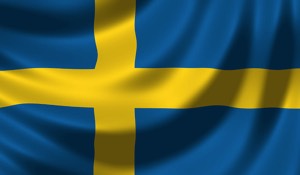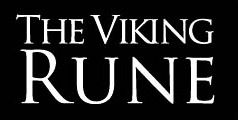
The list of top 100 popular Swedish names includes names that have been the most widespread during the last 100 years in Sweden. Some of them were popular once and then enjoyed less spreading. Others remain popular until today. The list is divided into top 50 male and top 50 female Swedish names. ON stands for Old Norse, OE for Old English, OHG for Old High German.
Male Swedish Names
Åke — ON Áki from Ancient Germanic *anuR ‘father’. May 8.
Arne — ON ǫrn ‘eagle’. August 4.
Arvid — ON ǫrn ‘eagle’ + viðr ‘forest, wood, tree’. August 31.
Axel — from Axelen, Old Danish form of Absalom. June 16.
Bengt — Old Swedish short form of Benedikt. March 21.
Bertil — Swedish form of Bertilo, a pet form of names containing Bert-, especially Berthold. June 11.
Birger — ON bjarga ‘to help, to rescue’. June 9.
Björn — ON bjǫrn ‘bear’. June 11.
Bror — ON bróðir ‘brother’. October 5.
Börje — variant of Birger. June 9.
Einar — ON einn ‘one, alone’ + herr ‘army’. September 26.
Erik — ON einn ‘one, alone’ + ríkr ‘mighty, distinguished’. May 18.
Ernst — Old High German name meaning ‘seriousness’. March 2.
Folke — ON folk ‘people’, ‘army’, ‘chief’. July 14.
Fredrik — ON friðr ‘love, peace’ + ríkr ‘mighty, distinguished’. July 18.
Georg — short form of Georgius, Latin spelling of a Greek name meaning ‘farmer’. April 23.
Gunnar — ON gunnr ‘battle, fight’ + herr ‘army’. January 9.
Gustav — ON gautr ‘Goth, Geat’ + stafr ‘staff’. June 6.
Göran — from Jurian, Low German variant for Georg. April 23.
Gösta — variant of Göstav, same as Gustav. June 6.
Hans — German short form for Johannes. August 29.
Harald — ON herr ‘army’ + valdr ‘ruler’. April 1.
Henrik — Low German form of Heinrich. January 19.
Håkan — ON hár ‘high’ + konr ‘son’. June, 22 in Norway.
Ingvar — Ing (name of god) + ON herr ‘army’. April 10.
Ivar — ON ýr ‘yew tree, bow’ + herr ‘army’. January 31.
Jan — short form of Jahan, from Johannes. January 11.
Johan — short form of Johan, from Johannes. December 27.
Karl — from Háriolus, pet form of Germanic names beginning with *harja- ‘army’. January 28.
Kjell — ON ketill ‘cauldron’, ‘helmet’. July 8.
Knut — ON knútr ‘knot’. In Sweden the name sometimes has been used for the last child in the family. January 13.
Kurt — Low German short form of Konrad ‘bold’ + ‘counsel’. November 12.
Lars — from Laurentius. August 10.
Leif — ON leifr ‘heir, descendant’. June 30.
Lennart — from Old High German Leonhard ‘lion’ + ‘strong’. September 28.
Magnus — Latin byname meaning ‘great’. August 19.
Niklas — Norse form of Nicolaus ‘victory’ + ‘people’. December 6.
Nils — from Nighlis, Old Swedish variant of Nicolaus. October 8.
Olof — Ancient Germanic *anuR ‘father’ + *laibaR ‘heir, descendant’. July 29.
Oskar — ON áss ‘god’ + geirr ‘spear’. December 1.
Per — short form of Peter. August 1.
Peter — Swedish form of Petrus. June 29.
Ragnar — ON rǫgn (plural) ‘advise, decision, might’ + herr ‘army’. October 1.
Rolf — ON Hrólfr ‘fame’ + ‘wolf”. August 27.
Rune — ON rún ‘secret’. November 24.
Sten — ON steinn ‘stone’. December 14.
Stig — ON stíga ‘to step, tread’. December 17.
Sven — ON sveinn ‘young man, lad’. December 5.
Torsten — ON Þórstæinn ‘Thor’ + ‘stone’. February 23.
Ulf — ON ulfr ‘wolf’. April 11.
Female Swedish Names
Agneta — variant of Agnes, Latin form of a Greek name meaning ‘pure’, ‘chaste’. January 21.
Anna — Latin form of a Hebrew name meaning ‘mercy’, ‘favour’. January 5.
Annika — diminutive form of Anna. April 21.
Åsa — short form of names beginning with the element derived from ON áss ‘god’. September 12
Astrid — ON áss ‘god’ + fríðr ‘beautiful’. November 27.
Barbro — variant of Barbara, a Greek name meaning ‘foreign’. December 4.
Berit — variant of Brigitta, a Celtic name meaning ‘mighty’. October 13.
Birgitta — another variant of Brigitta. October 7.
Camilla — female form of Latin Camillus ‘attendant at religious services’. March 7.
Cecilia — Nordic form of a Latin name related to the word ‘blind’. November 22.
Charlotta — female form of a French name Charles. May 12.
Christina — female form of Christian. July 24.
Edit — OE ead ‘prosperity’ + gyð ‘battle’. October 31.
Elin — variant of Ella, short for Helena. July 31.
Elisabet — Greek form of the Hebrew name meaning ‘my god’ + ‘seven’ (equivalent to ‘perfection’, ‘opulence’). November 19.
Elsa — short form of Elisabet. October 30.
Emma — a form of Erma, short for OHG names with the element meaning ‘world wide’, ‘entire’. July 23.
Eva — Latin form of the Hebrew name meaning ‘giving life’. December 24.
Greta — German short form of Margareta. July 20.
Gun — ON gunnr ‘battle’, ‘fight’. June 1.
Gunborg — ON gunnr ‘battle’, ‘fight’ + bjǫrg ‘help’, ‘deliverance’. March 3.
Gunhild — ON gunnr ‘battle’, ‘fight’ + hildr ‘battle’, ‘fight’. January 30.
Gunilla — a form of Gunhild. January 30.
Gunvor — ON gunnr ‘battle’, ‘fight’ + vár ‘spring (season)’ or ‘woman’. March 3.
Hanna — Hebrew name meaning ‘mercy’, ‘favour’. January 5.
Helena — a form of a Greek name meaning ‘torch’. July 31.
Ida — German short form of Idaberga ‘woman’ + ‘stronghold’. September 14.
Ingeborg — ON ‘Ing’ (name of a god) + ‘stronghold. May 28.
Ingegerd — ON ‘Ing’ (name of a god) + ‘enclosure’, ‘protection’. November 7.
Inger — a form of Ingegerd. October 9.
Ingrid — ON ‘Ing’ (name of a god) + ‘beautiful’. October 9.
Irene — Greek name meaning ‘peace’. April 5.
Johanna — female form of a Greek name. July 21.
Julia — female form of a Roman name. February 16.
Karin — a short form of Katarina and Karolina. August 2.
Katarina — Greek name of uncertain meaning. November 25.
Kerstin — a form of Christina. July 24.
Linnea — Linnæa borealis is the Latin name of the twinflower. Named so after Carl Linné. May 13.
Margareta — Greek name of Persian origin meaning ‘pearl’. July 20.
Margit — a form of Margareta. June 15.
Marie — Greek form of Miryam, a name of uncertain meaning and origin. February 28.
Matilda — OHG ‘power’, ‘ability’ + ‘battle’, ‘fight’. March 14.
Rut — Hebrew name of uncertain meaning. January 4.
Signe — ON ‘victory’ + ‘new moon’. August 23.
Siv — ON ‘wife’, ‘bride’. March 8.
Sonja — Russian pet form of Sophia. May 15.
Svea — probably from OHG sweba ‘free’. January 2.
Therese — a form of Theresia, Greek name of uncertain meaning. April 26.
Ulla — pet form of Ursula, Ulrika and Hulda. July 4.
Ulrika — female form of Ulrik, OHG ‘patrimony’ + ‘mighty’. July 4.

I’m so glad to see my name on any list even if it is in another country. I can never find a necklace or keychain with my name on it and I consider it an achievement in recycling the old names. I went on to choose names similarly for my kids.